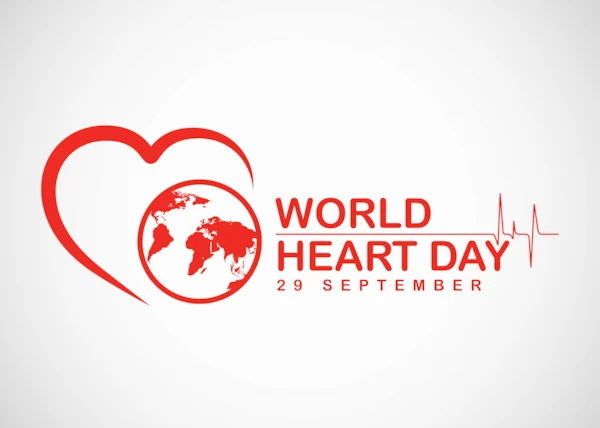Common Heart Diseases: Symptoms, Risk Factors And Treatment
Learn about the common types of heart disease, their symptoms, and treatment options. Discover how lifestyle changes and early detection can improve outcomes and enhance quality of life.

Written by Dr Sonia Bhatt
Last updated on 3rd Jul, 2025
Heart disease is an umbrella term encompassing various heart-related conditions. These include coronary artery disease, arrhythmias (irregular heartbeats), congenital heart defects (present at birth), heart muscle disorders, and valve-related issues. When the heart functions inadequately, it struggles to supply sufficient oxygen, blood, and nutrients to the body, disrupting the overall functioning of different bodily systems. Keep reading to explore the common types of heart disease, their symptoms, and available treatment options.
Types of Common Heart Diseases
There are several different types of heart diseases. Some common ones include:
Coronary Artery Disease (CAD)
Coronary artery disease is one of the most prevalent forms of heart disease. It occurs when the coronary arteries, which deliver oxygen-rich blood to the heart, become narrowed or blocked. This narrowing is caused by the gradual buildup of plaque, composed of cholesterol and other substances, which reduces the blood flow needed to nourish the heart muscle
Heart Arrhythmias
Heart arrhythmias, also known as dysrhythmias, refer to irregular heartbeats that may be too fast, too slow, or uneven. They can originate from different areas of the heart. While some arrhythmias are harmless and require no treatment, others can lead to severe complications, including cardiac arrest, making prompt medical attention essential.
Congenital Heart Defects
Congenital heart defects (CHD) refer to structural abnormalities in the heart that are present from birth. These defects can disrupt normal blood flow and may include issues such as a hole in the heart wall, irregularities in blood vessels (e.g., too few, too many, or improper blood flow direction), and malfunctioning heart valves that regulate blood circulation.
Cardiomyopathy
Cardiomyopathy is a condition that affects the heart muscle, known as the myocardium. It can cause the muscle to stiffen, thicken, enlarge, or develop scar tissue, reducing its ability to pump blood efficiently. Over time, this weakening of the heart can progress to heart failure, posing significant health risks.
Risk Factors Associated with Heart Diseases
Ranging from lifestyle habits to genetics, there are several factors that increase your risk of heart disease, including:
Lifestyle-related Factors
Certain lifestyle choices significantly increase the risk of heart disease:
Unhealthy Diet: Consuming foods rich in trans fats, salt, saturated fats, and cholesterol can lead to conditions like atherosclerosis, which are closely associated with heart disease.
Physical Inactivity: Lack of regular exercise not only heightens the risk of heart disease but can also contribute to related health issues such as high blood pressure, obesity, high cholesterol, and diabetes.
Excessive Alcohol Consumption: Drinking alcohol excessively can raise blood pressure and triglyceride levels, both of which are linked to a higher risk of heart disease.
Smoking: Smoking harms the heart and blood vessels, increasing the likelihood of conditions like atherosclerosis and heart attacks.
Genetic Predisposition
Genetic factors can significantly influence the likelihood of developing heart disease:
Family History: Individuals with a parent or sibling who has heart disease face a considerably higher risk of developing it themselves.
Sex: While heart disease is a leading cause of death for both men and women, men are generally at a higher risk.
Age: Although heart disease can occur at any age, the risk increases with advancing age.
Race and Ethnicity: Cardiovascular disease affects all groups, but certain populations are more prone to conditions that heighten the risk of heart disease and stroke.
Co-existing Medical Conditions
Certain health conditions can heighten the risk of heart disease:
High Blood Pressure: Uncontrolled hypertension is a significant contributor to heart disease, straining the heart and blood vessels.
Unhealthy Cholesterol Levels: Elevated levels of LDL (bad cholesterol) and triglycerides can cause arterial narrowing, reducing blood flow to the heart.
Diabetes: Excess sugar in the bloodstream associated with diabetes can damage blood vessels and the heart, increasing the risk of cardiovascular complications.
Obesity: Being overweight not only raises the likelihood of heart disease but also contributes to other related risk factors, such as hypertension and diabetes.
Get Your Heart Disease Symptoms Checked
Signs and Symptoms of Heart Diseases
Different heart diseases have different symptoms. Here are the symptoms of some common heart diseases:
Symptoms of Coronery Artery Disease
Coronary artery disease (CAD) can develop silently over time, often showing no symptoms initially. As the condition progresses and arteries narrow, you might experience:
Stable angina, which is temporary chest pain or discomfort that occurs in a predictable pattern
Shortness of breath even during light physical exertion
In some cases, the first noticeable symptom of CAD may be a sudden heart attack.
Symptoms of Heart Arrhythmias
Heart arrhythmias can present a range of symptoms, including:
Heart palpitations
Dizziness or lightheadedness
Fainting episodes
Shortness of breath
Chest discomfort
Weakness or fatigue
Symptoms of Congenital Heart Defects
Congenital heart disease symptoms may appear at birth or develop later in life. Common signs include:
Cyanosis
Breathing issues
Excessive sleepiness
Fatigue
Heart murmur
Exercise intolerance.
Cold hands and feet or pale skin due to poor blood circulation
Abnormal heartbeat
Symptoms of Cardiomyopathy
Cardiomyopathy symptoms include:
Heart palpitations
Fatigue
Chest pain
Shortness of breath (dyspnea)
Arrhythmia
Syncope (fainting)
Swelling (oedema) in your legs or ankle
Get Your Heart Disease Symptoms Checked
Diagnostic Approaches for Heart Diseases
A range of tests can help identify different types of heart disease. These include:
Electrocardiogram (EKG or ECG): Measures the electrical activity of the heart.
Ambulatory Monitors: Tracks heart activity over time using portable devices.
Echocardiogram (Echo): Uses ultrasound to create images of the heart.
Cardiac CT Scan: Provides detailed pictures of the heart and its blood vessels.
Heart MRI: Offers high-resolution images of the heart's structure and function.
Blood Tests: Checks cholesterol levels and other markers of heart health.
Stress Test: Evaluates heart function during physical exertion.
Cardiac Catheterisation: Examines the heart and its blood vessels using a catheter inserted into a vein or artery.
Treatment Options for Heart Diseases
Managing heart disease often requires lifestyle adjustments, medication, or medical procedures. Common treatment approaches include:
Lifestyle Changes: Adopting a heart-healthy diet by reducing saturated fats, quitting smoking or tobacco use, and incorporating regular physical activity, such as walking, into your routine.
Medications: Medicines can help lower blood pressure, manage cholesterol, treat heart failure, or regulate abnormal heart rhythms. Following your healthcare provider's prescription instructions is essential for effective results.
Surgical or Medical Procedures: Treatments may include open-heart surgery, minimally invasive surgeries, ablation, stent placement, or catheterization. Cardioversion is another option for correcting irregular heart rhythms.
Cardiac Rehabilitation: This supervised program combines monitored exercise with nutritional counselling to strengthen the heart, especially after a heart attack, and supports sustainable lifestyle changes
Consult Top Cardiologists
Complications Arising from Heart Diseases
Heart diseases can result in severe complications, some of which are life-threatening. These complications may include:
Heart attack
Cardiomyopathy
Heart failure
Stroke
Cardiogenic shock
Irregular heart rhythms
Cardiac arrest
Pulmonary hypertension
Heart valve disease
Liver or kidney damage
Preventative Measures for Heart Diseases
Here are some tips to help you prevent heart disease:
Manage medical conditions such as high blood pressure, diabetes, and high cholesterol effectively.
Maintain a healthy weight that is suitable for your body.
Adopt stress management techniques to lower your stress levels.
Engage in 30 to 60 minutes of exercise on most days of the week.
Avoid using any tobacco products to protect your heart health.
Follow a heart-healthy diet that is low in saturated fats and salt, as advised by your healthcare provider.
Conclusion
Heart diseases remain a leading cause of concern globally, impacting millions of lives. While factors such as genetics and co-existing medical conditions may elevate the risk, lifestyle choices and early detection play pivotal roles in prevention and management. Understanding the symptoms, seeking timely medical attention, and adhering to prescribed treatments can significantly improve outcomes. By making conscious efforts to adopt a heart-healthy lifestyle and staying informed about potential complications, individuals can reduce their risk and improve their quality of life.
Consult Top Cardiologists

Dr. Sumanta Chatterjee
Cardiologist
12 Years • MBBS,MD General Medicine,DM Cardiology
Kolkata
HealthYou Speciality Clinic & Diagnostics., Kolkata
(25+ Patients)

Dr. Amit. A. Bharadiya
Cardiologist
12 Years • MBBS, MD General Medicine, DNB Cardiology, FSCAI
Maharashtra
Surabhi Hospital, Maharashtra, Maharashtra

Dr. Pinaki Nath
Cardiologist
8 Years • MBBS, MD General Medicine, DM Cardiology
Barasat
Diab-Eat-Ease, Barasat
Dr. Dixit Garg
Cardiologist
10 Years • MBBS , DNB (General medicine) , DNB (cardiology)
Gurugram
Smiles & Hearts, Gurugram

Dr. Mangesh Danej
Cardiologist
8 Years • MBBS, MD (General Medicine), DNB (Cardiology)
Pune
Dr Danej clinic, Pune
(375+ Patients)
Consult Top Cardiologists

Dr. Sumanta Chatterjee
Cardiologist
12 Years • MBBS,MD General Medicine,DM Cardiology
Kolkata
HealthYou Speciality Clinic & Diagnostics., Kolkata
(25+ Patients)

Dr. Amit. A. Bharadiya
Cardiologist
12 Years • MBBS, MD General Medicine, DNB Cardiology, FSCAI
Maharashtra
Surabhi Hospital, Maharashtra, Maharashtra

Dr. Pinaki Nath
Cardiologist
8 Years • MBBS, MD General Medicine, DM Cardiology
Barasat
Diab-Eat-Ease, Barasat
Dr. Dixit Garg
Cardiologist
10 Years • MBBS , DNB (General medicine) , DNB (cardiology)
Gurugram
Smiles & Hearts, Gurugram

Dr. Mangesh Danej
Cardiologist
8 Years • MBBS, MD (General Medicine), DNB (Cardiology)
Pune
Dr Danej clinic, Pune
(375+ Patients)

